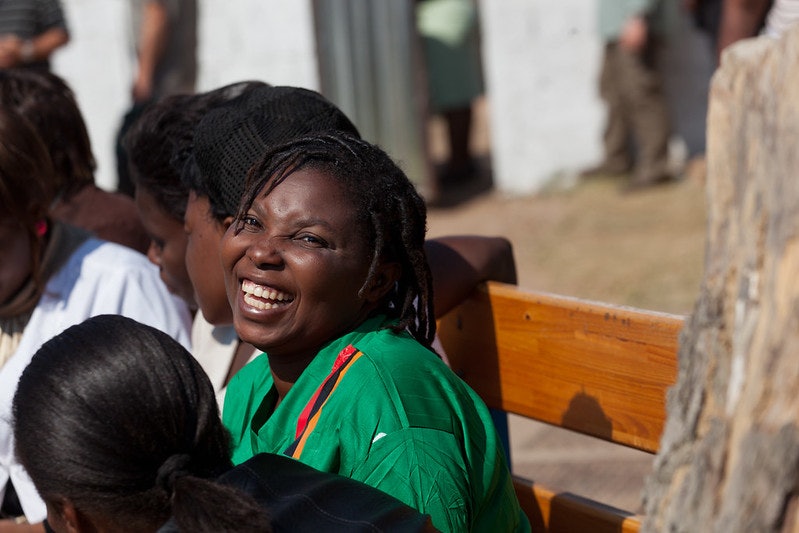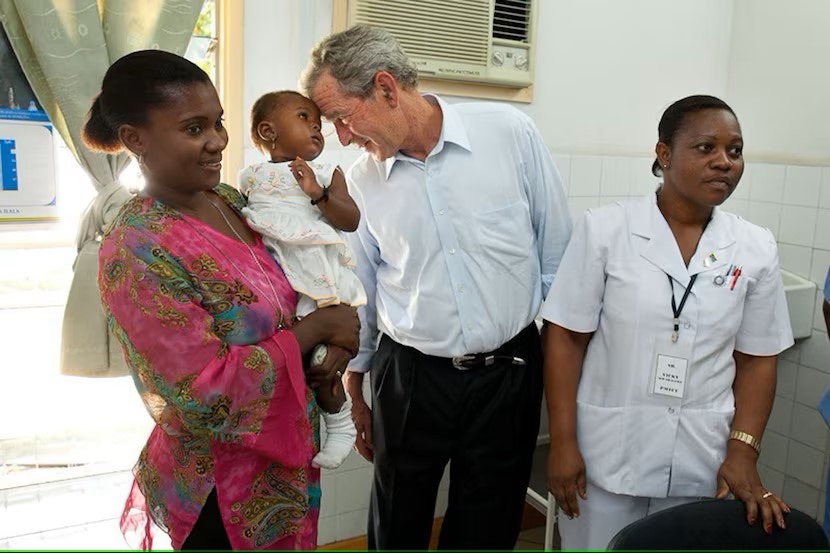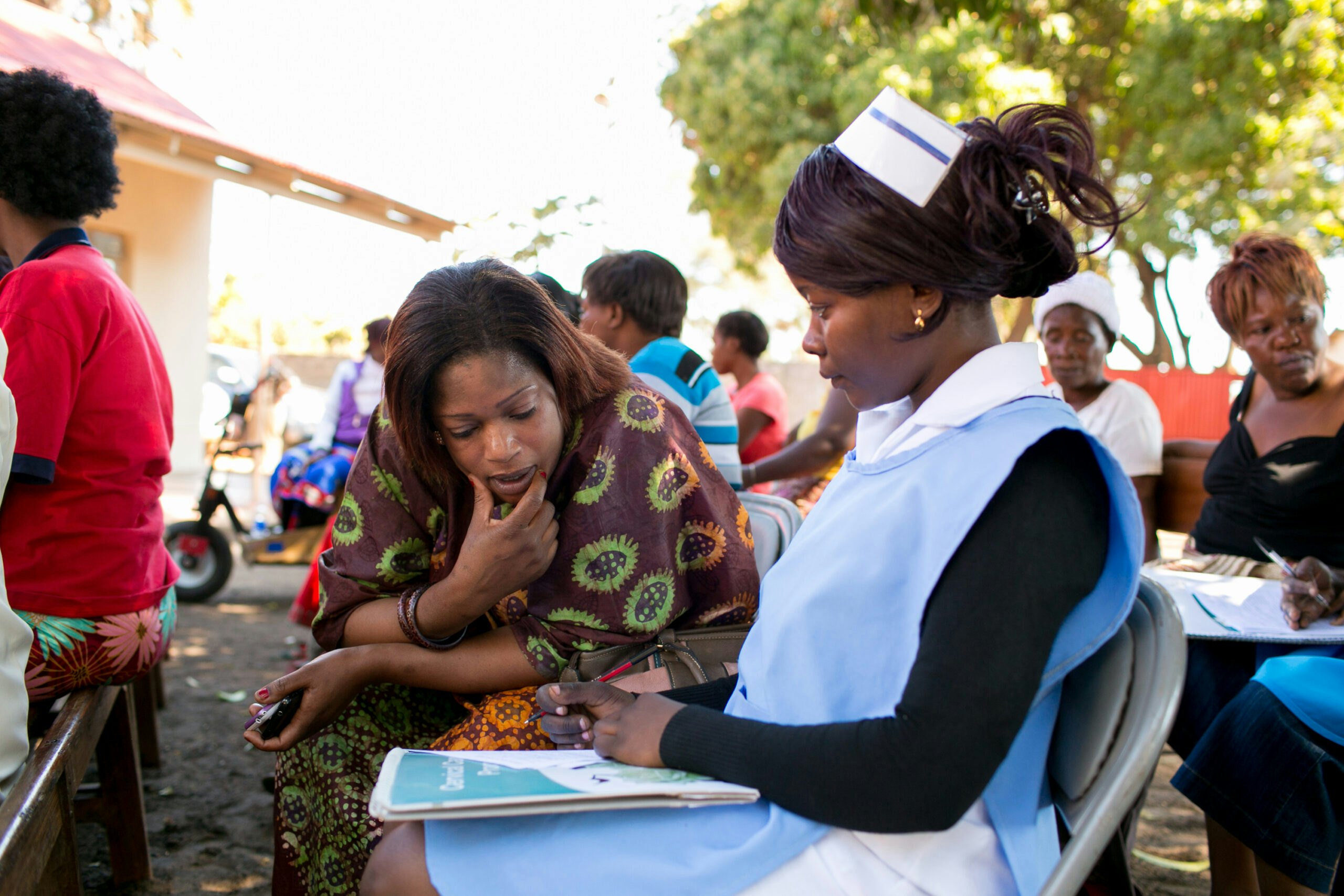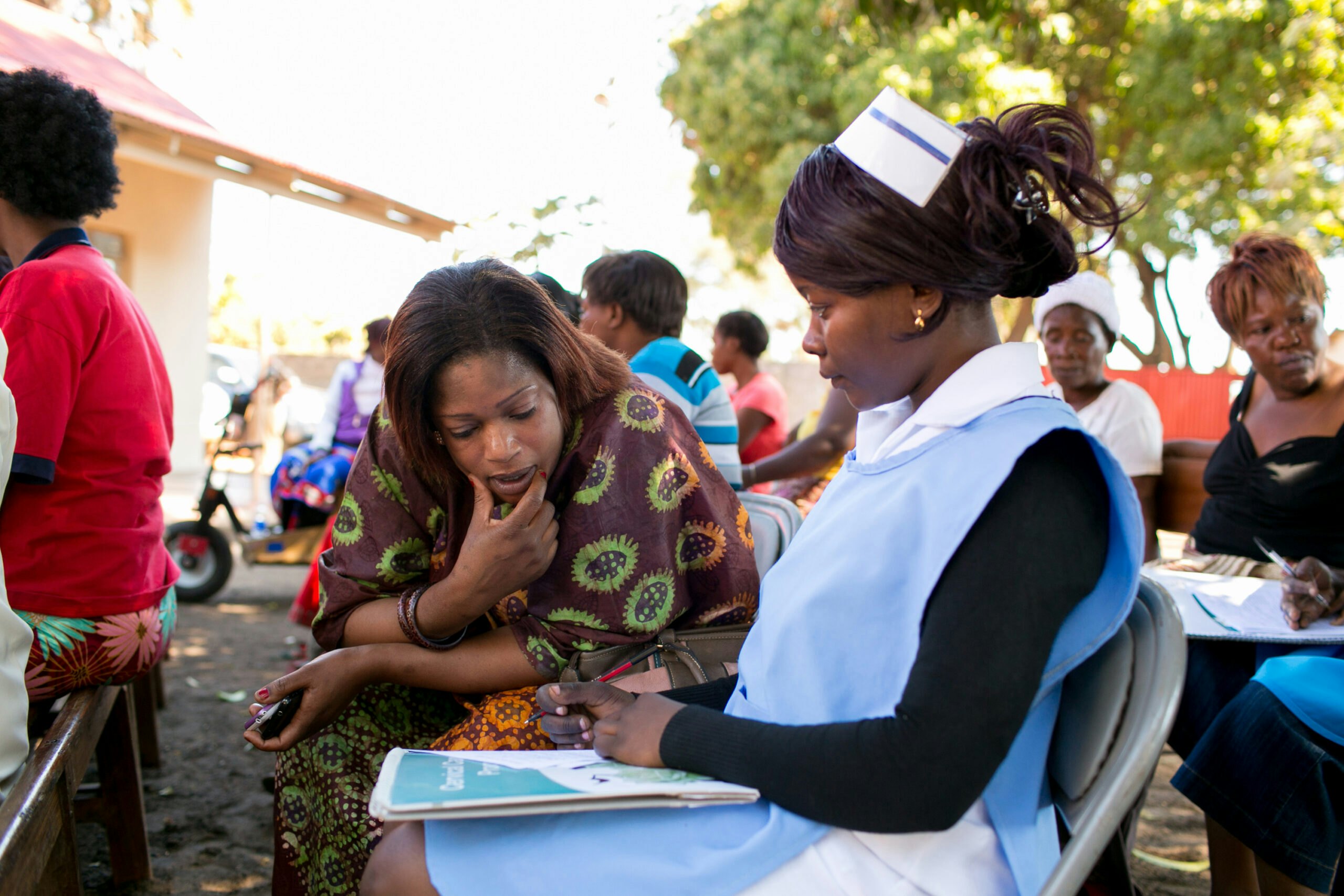Many would consider me a well-exposed pre-medical student — the son of a primary care physician who’s spent summers working in...
Many would consider me a well-exposed pre-medical student — the son of a primary care physician who’s spent summers working in hospitals from urban Detroit to rural Missouri. I thought those experiences and challenges gave my desire to become a physician purpose — but all of that changed in the two hours I spent in a small clinic at Livingstone General Hospital in Zambia where I visited as part of a Bush Institute delegation of global health volunteers. Nothing I have seen or experienced in health care has inspired me like this.
Sitting on two worn benches, on a faded patio, were 15 Zambian women, a few with their heads in their hands, and most of whom looked nervous—as if they were about to receive a possible death sentence. That image became seared into my mind as the kind Zambian physician ushered the other SMU students and me into his office.
Livingstone General Hospital is a large hospital that serves a community of nearly a million people, in a country where nearly 70% of the population lives in poverty. We entered the cervical cancer screening clinic, which was newly renovated and opened last month—with support from the Zambian government through funds provided by PEPFAR, a program started by President George W. Bush in 2003. The physician excitedly described how patients were assessed and treated. With just a staff of two nurses, the physician said that they had seen about 70 patients per week in the five weeks since they re-opened.
When asked what impact he thought the clinic had on the community, he said, “We have given them a free mind. We are providing them with as much information as possible, so they feel empowered. Most of them are so, so scared when they come in. After hearing that they were free [of cancer] or could be treated easily, you can see the expression of relief on their face.”
Nearly 92% of the women screened had such expressions of relief. And all but one of the others had lesions caught early enough to be treated immediately and cured.
When asked how they found out about the clinic, many mentioned seeing a television advertisement about the dangers of cervical cancer and where they could be screened. Some came due to pain, and others out of concern for their own health.
One lady said, “Last week, at my church, there was a seminar about this, and I decided to come. My sister [points at her] came too with me.” Her sister bashfully looked up at us and smiled. I realized how highly the women valued their faith, and the trust placed in their clergy.
Another woman added, “My husband—he listen to no one. But, he listen to the preacher.”
For these women, acquiring the consent of their husband to come to the clinic was the most difficult part. Others were afraid of accusations of disloyalty or abandonment by their husband. However, many have found support at home, at church, and in the community – support that is growing due to community outreach and increasing access to treatment.
I came to Africa to gain a new experience in health, but what I discovered was a new purpose. In understanding their struggle, I better understand a role that I may play to help ease the struggle people suffering around the world, from urban Detroit to rural Zambia.
Prithvi Rudrappa is an SMU student (Biochemisry, Finance, Spanlish '15) that is part of a small volunteer delegation selected to begin renovations on a cervical cancer clinic in Livingstone, Zambia.




























